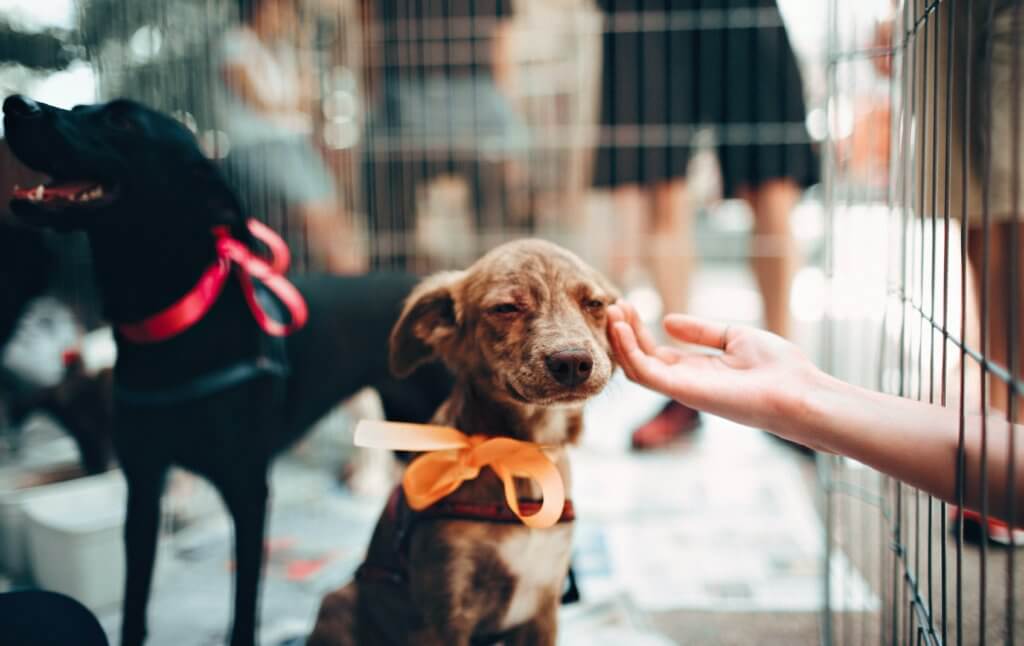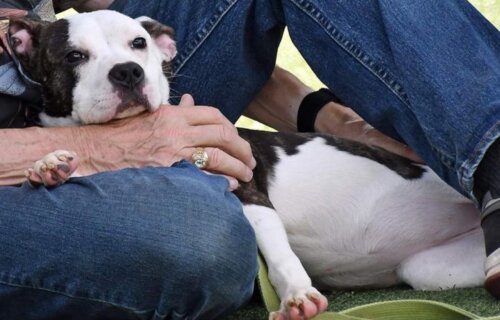COLUMBUS, Ohio — Over six million animals enter shelters on an annual basis, but only about half end up being adopted. Shelter animals, dogs specifically, often get the reputation that they’re mangy and hard to control. While there may be some truth to these canine stereotypes, new research indicates most households that decide to adopt a shelter dog end up feeling very happy about the decision.
Scientists at The Ohio State University report that while shelter dogs did indeed display more stranger aggression or training problems while researchers tracked them for six months at their new homes, owner satisfaction still remained high. In fact, 94 percent characterized their new pup’s behavior as either excellent or good.
Despite Americans adopting approximately two million dogs from shelters on an annual basis, very few studies have been conducted focusing on shelter dog behavior after placement into a home. So, the research team decided to survey the owners of 99 adopted dogs from five local Ohio shelters between October 2020 and May 2021. Study authors periodically checked in with the families, seven, 30, 90, and 180 days after adoption.
For each version of the survey, using a scale of zero to four, dog owners reported on the following problem behaviors among their pets: excitability, stranger-directed aggression, owner-directed aggression, dog-directed aggression, familiar dog aggression, stranger-directed fear, nonsocial fear, dog-directed fear, touch sensitivity, separation-related behavior, attachment and attention-seeking, training difficulty, chasing, and energy levels.
While the first survey covered basic demographic information and whether or not the owner owned a dog before, each of the four questionnaires asked participants about their overall satisfaction with their dog’s behavior, any household changes since the adoption, and (importantly) if they still owned the dog.

Significantly, owners reported an increase from the initial survey in stranger-directed aggression behavior at every subsequent check-in. More specifically, 62 percent of dogs displayed stranger aggression at the 10-day mark while 77 percent did the same at 180 days. Researchers say this may be because as dogs become more comfortable in their household, their protective and territorial behaviors tend to increase.
Then, over the next six months of the project, owners reported more excitability, touch sensitivity, training difficulty, and chasing behaviors in comparison to the baseline. Reports of separation-related behaviors and attachment and attention-seeking behaviors decreased, presumably because the dogs became more and more assured their owners would consistently return home. Also, another seven people returned their adopted dogs during the assessment period.
However, despite these ratings suggesting a big uptick in undesirable behavior like stranger aggression and training problems in the dogs, the final survey saw 100 percent of responding owners report that their dog was adjusting to their new home extremely or moderately well. Another 94 percent rated their dog’s overall behavior as excellent or good, six percent as fair, and not a single owner reported poor or terrible behavior. Three in four (75%) said they believed their dog’s behavior had improved over time.
Researchers note that sampling bias may have been present in the results, as participating dog owners opted willingly into the study (gift cards were offered for completion of the first and final surveys). There may have also been behaviors the surveys did not capture but were still strongly valued by owners, thus perhaps partially explaining the high satisfaction ratings seen in the final survey.
“This is one of the most comprehensive studies, using multiple timepoints, to investigate post-adoption behavior in dogs. The findings help shelters counsel new dog guardians with more accurate information on what behavior changes to expect after adoption. This information will hopefully allow people to get help sooner for their dog’s behavior problems and keep more dogs in their adoptive homes,” the study authors conclude in a media release.
The study is published in the journal PLoS ONE.
You might also be interested in:
- Best Dog Breeds For First-Time Owners: Top 5 ‘Entry-Level’ Canines, According To Experts
- Nearly 4 in 5 rescue dog parents agree ‘3-3-3’ rule is spot on for new pooches
- Dogs can sync up their behavior with children, but they do it better with adults


My blue Merle bulldog has gotten extremely bad after a few months. She won’t let u touch her at times. She wakes up out of her sleep and either or yelp. I still insure her she’s safe. She doesn’t want anyone around me and don’t touch her when she is resting she gets aggressive. I have had her for 4 years and it’s still a work in progress
Doggy PTSD, they are instinctively fighting to keep bonded with their “pack”. And trying to prevent being relocated. Seems clear to me.
I had a 6 month old rot/lab. Deemed too vicious to be adopted.
A group saved him from certain death but it didn’t get better.
I feel bad, this woman tried to save so many dogs the raided her house as i was in the middle of adopting that dog.
I don’t know what happened to her, but I got the dog in time.
I’M SO GLAD I DID!!
I noticed him snapped at her while filing out papers on the floor. I questioned what did I just do..
He saw my cat sonder in a ran after her but I heard a hiss and a yelp after that he was actually afraid of cat’s.
He was toy aggressive, treat aggressive, if I accidentally touched him, he’d show teeth and growl.
I would give him a treat slowly pet his but on the couch, let him snarl, within a month I got him to drop and I pretended to take a bite and I thanked him.
He was my best dog, calm, loved visitors, never barked unless I was in the back of the house and he heard someone.
He wouldn’t let pge down my driveway one day, barking, I looked out the window, barking, looking tears the house, they asked, is your dog gonna kill us? I said it’s OK Harley, and he greeting them with tail wagging.
He was I think being raised at the shelter, then with 30 dogs he wanted a calm loving him.
He spoke English, I say walk? He go grab his leash, I say mom n dad? He’d look put the window, then I say no you wanna see them, he’s at the dog wagging his tail.
I’d say wanna go home, he jumped in my car to the point I’d still be talking abd didn’t know where he was.
We once went to my parents 4th of July party, he ran past everyone and grabbed his toy, and founfmd mom n dad out of 100 people he ran past.
He was so good. He LOVED babies and children. He’d lick them but not adults. He saw a newborn and was fascinated..he was so slow to look and gental, no didn’t want dog kisses. A pair of elderly people were walking by, I said, go upstairs, he waited by my door and was so obedient, never on a leash, went to stores even slept in the car if I went to the Dr’s office and didn’t wanna leave him alone at home. He just loved being with me, he loved his daddy but daddy didn’t want to be bothered when he got home so I kept my dog.